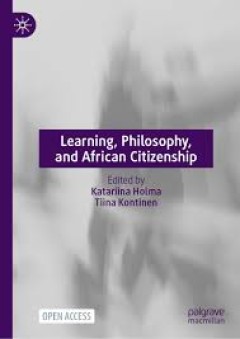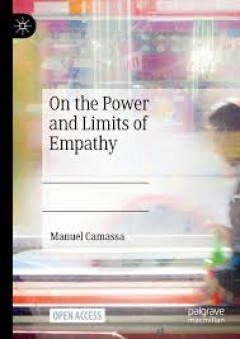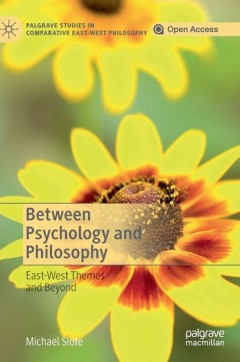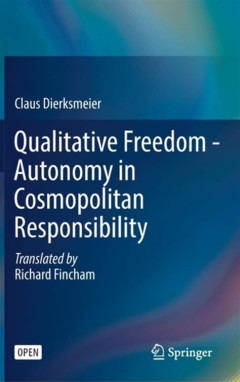Filter by

Democratizing Risk Governance
This open access book features contributions from a multidisciplinary team of leading and emerging scholars focused on democratization of risk assessment, management, and communication. The volume identifies and sheds light on key risk governance dilemmas related to public trust, risk perception and public participation. The first part of the book articulates the relationship among science, exp…
- Edition
- -
- ISBN/ISSN
- 978-3-031-24271-7
- Collation
- XVIII, 421
- Series Title
- -
- Call Number
- -

Learning, Philosophy, and African Citizenship
We acknowledge with gratitude the funding received from the Academy of Finland DEVELOP-programme (2018–2022) for the research project Theory and practice of learning to be a citizen: Experiences from Tanzania and Uganda (decision numbers 316098 and 316100) and from the Eudaimonia Institute of the University of Oulu for the research project Citizenship in Change: Constructing a Novel Theo…
- Edition
- -
- ISBN/ISSN
- 9783030948825
- Collation
- XIII, 221
- Series Title
- -
- Call Number
- -

Migration Diversity and Social Cohesion : Reassessing the Dutch Policy Agenda
This open access book shows policymakers which initiatives work when responding to the increasing diversity in cities, towns and neighborhood's. In recent times, policymakers have grappled with ways of responding to this increase, which has resulted in a plethora of policy initiatives, some more effective than others. Bringing together a large amount of research and evidence-based policy recomm…
- Edition
- 1
- ISBN/ISSN
- 9783031142246
- Collation
- XIII, 187 hlm,: ill, lamp;
- Series Title
- -
- Call Number
- -

On the Power and Limits of Empathy
This book has two main objectives. The first is to identify and adequately describe the phenomenon of empathy. This essentially means offering a strong, reasoned and accurate description of the phenomenon of empathy in order to capture the essence of the empathic phenomenon and clearly distinguish it from other similar emotional phenomena such as sympathy or compassion The second part focuse…
- Edition
- -
- ISBN/ISSN
- 9783031375224
- Collation
- XIV, 374
- Series Title
- -
- Call Number
- -

Between Psychology and Philosophy : East-West Themes and Beyond
This open access book discusses a variety of important but unprecedented ways in which psychology can be useful to philosophy. The early chapters illustrate this theme via comparisons between Chinese and Western philosophy. It is argued that the Chinese notion of a heart-mind is superior to the Western concept of mind, but then, more even-handedly, the relative strengths and weaknesses of Chine…
- Edition
- 1
- ISBN/ISSN
- 9783030225032
- Collation
- -
- Series Title
- -
- Call Number
- -

Organization in Biology
This open access book assesses the prospects of (re)adopting organization as a pivotal concept in biology. It shows how organization can nourish biological thinking and practice, by reconnecting with the idea of biology as the science of organized systems. The book provides a comprehensive state-of-the-art picture of the characterizations and uses of the concept of organization in both biologic…
- Edition
- -
- ISBN/ISSN
- 978-3-031-38968-9
- Collation
- VIII, 333
- Series Title
- History, Philosophy and Theory of the Life Sciences (HPTL, volume 33)
- Call Number
- -

Vitalism and Its Legacy in Twentieth Century Life Sciences and Philosophy
This Open Access book combines philosophical and historical analysis of various forms of alternatives to mechanism and mechanistic explanation, focusing on the 19th century to the present. It addresses vitalism, organicism and responses to materialism and its relevance to current biological science. In doing so, it promotes dialogue and discussion about the historical and philosophical importan…
- Edition
- -
- ISBN/ISSN
- 978-3-031-12604-8
- Collation
- VIII, 269
- Series Title
- History, Philosophy and Theory of the Life Sciences (HPTL, volume 29)
- Call Number
- -

From Assessing to Conserving Biodiversity : Conceptual and Practical Challenges
This open access book features essays written by philosophers, biologists, ecologists and conservation scientists facing the current biodiversity crisis. Despite increasing communication, accelerating policy and management responses, and notwithstanding improving ecosystem assessment and endangered species knowledge, conserving biodiversity continues to be more a concern than an accomplished ta…
- Edition
- -
- ISBN/ISSN
- 978-3-030-10991-2
- Collation
- XIV, 452
- Series Title
- History, Philosophy and Theory of the Life Sciences (HPTL, volume 24)
- Call Number
- -

The Ethical Spirit of EU Law
This open access book seeks to identify the ethical spirit of European Union (EU) law, a context in which we can observe a trend towards increasing references to the terms ‘ethics’ and ‘morality’. This aspect is all the more important because EU law is now affecting more and more areas of national law, including such sensitive ones as the patentability of human life. Especially when une…
- Edition
- 1
- ISBN/ISSN
- 9783030105822
- Collation
- XIX, 157 hlm,: ill, lamp;
- Series Title
- -
- Call Number
- -

Qualitative Freedom - Autonomy in Cosmopolitan Responsibility
In the light of growing political and religious fundamentalism, this open access book defends the idea of freedom as paramount for the attempt to find common ethical ground in the age of globality. The book sets out to examine as yet unexhausted ways to boost the resilience of the principle of liberalism. Critically reviewing the last 200 years of the philosophy of freedom, it revises the princ…
- Edition
- 1
- ISBN/ISSN
- 9783030047238
- Collation
- X, 365 hlm,: ill, lamp;
- Series Title
- -
- Call Number
- -
 Computer Science, Information & General Works
Computer Science, Information & General Works  Philosophy & Psychology
Philosophy & Psychology  Religion
Religion  Social Sciences
Social Sciences  Language
Language  Pure Science
Pure Science  Applied Sciences
Applied Sciences  Art & Recreation
Art & Recreation  Literature
Literature  History & Geography
History & Geography